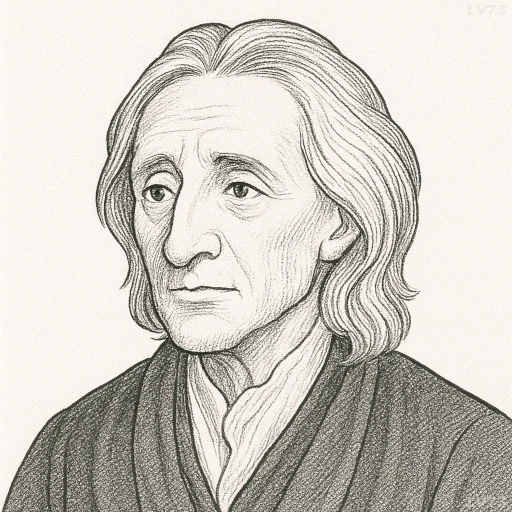“All mankind… being all equal and independent, no one ought to harm another in his life, health, liberty or possessions.”

- August 29, 1632 – October 28, 1704
- Born in England (UK)
- Philosopher and political thinker
table of contents
Quote
“All mankind… being all equal and independent, no one ought to harm another in his life, health, liberty or possessions.”
Explanation
In this quote, John Locke expresses the foundational principle of his political philosophy: the inherent equality and independence of all individuals. Locke argues that because all people are fundamentally equal, no one has the right to harm another person or infringe upon their life, health, liberty, or possessions. This view is tied to Locke’s belief in the concept of natural rights, which are rights that individuals possess by virtue of being human. These rights are unalienable and cannot be surrendered or transferred, and the role of government, according to Locke, is to protect these rights and ensure that no one is harmed by another.
Locke’s philosophy emerged in a time of intense political and religious conflict, particularly in England during the 17th century. The notion that all individuals are equal and should be free from harm laid the groundwork for later developments in liberal political theory, especially in the American and French Revolutions, where the ideals of equality and individual rights were central. Locke’s assertion of the right to personal security and property helped to frame the idea that governments should exist to serve the people, not the other way around, with their primary duty being the protection of these fundamental rights.
In the modern world, Locke’s principle remains vital in debates surrounding human rights, justice, and equality. It is reflected in international law and the Universal Declaration of Human Rights, which protect individuals from harm and discrimination in areas such as personal freedom, health care, and property rights. Furthermore, Locke’s ideas can be seen in contemporary discussions on civil liberties, especially as they relate to issues like freedom of speech, the right to privacy, and the protection of minority groups. Locke’s call for equality and protection from harm continues to inform policies and ethical standards in both democratic societies and international governance.
Would you like to share your impressions or related stories about this quote in the comments section?




